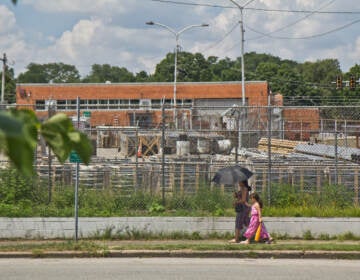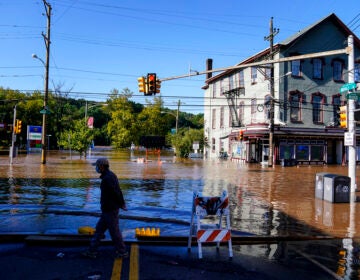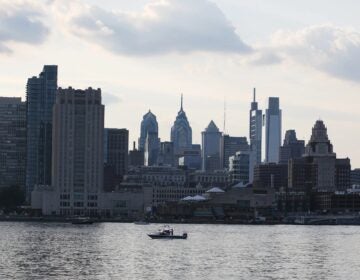New Jersey declares drought warning as reservoir, groundwater levels decline
Water supplies have worsened since last week in some locations, and about 40% of water providers are experiencing above-average demands for water.
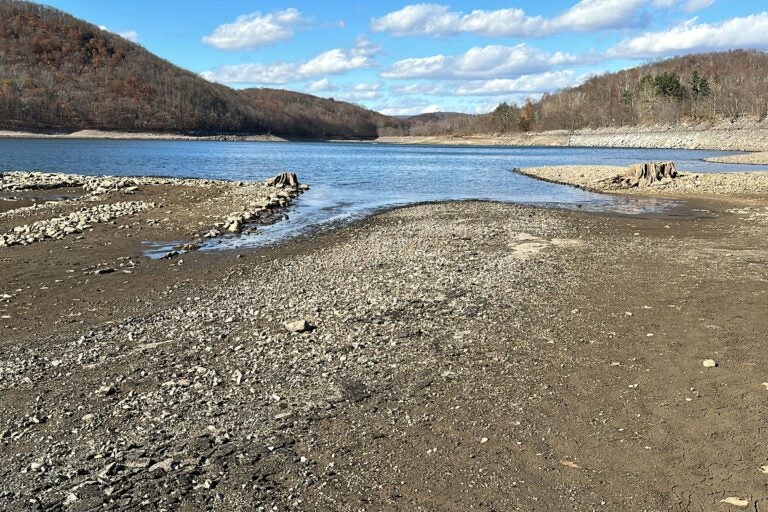
This Monday, Nov. 11, 2024 image shows the Wanaque Reservoir in Ringwood, N.J. (AP Photo/Ted Shaffrey)
From Philly and the Pa. suburbs to South Jersey and Delaware, what would you like WHYY News to cover? Let us know!
New Jersey declared a drought warning Wednesday as the region faces record-low rainfall, leading to the driest conditions in the past 120 years.
As a result, the state is battling an unseasonably high number of wildfires, while simultaneously facing a reduction of reservoir and groundwater supplies.
The drought warning allows the state to modify reservoir releases, require leak detections by water suppliers and urge the public to voluntarily use water sparingly.
“Unfortunately it appears these unseasonably dry conditions will not be ending any time soon,” Gov. Phil Murphy said during a press conference Wednesday.
“By every indication it looks like we have a very dry winter ahead of us,” Murphy said. “That means the drought could grow more severe, which may eventually require mandatory water restrictions. But we’re not there yet, and if we all act accordingly now we can hopefully avoid that outcome.”
New Jersey entered a drought watch in October as the state faced the driest two-month period on record, leading to diminished streamflow, reservoir and groundwater levels. Environmental officials across the region asked residents to voluntarily conserve water at home.
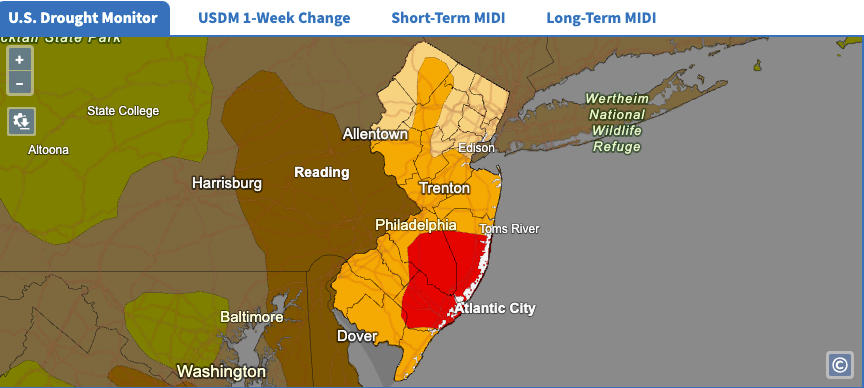
Water supplies have worsened since last week in some locations, officials said Tuesday, and about 40% of water providers are experiencing an above-average water demand. Officials are particularly concerned about significantly reduced levels in the Manasquan Reservoir, a source of drinking water for some residents in Monmouth County.
“It is critical that our residents take extra care to conserve water, even though this administrative action does not impose restrictions,” said Shawn LaTourette, New Jersey’s commissioner of environmental protection. “All our state, county and local agencies are recommended to take measures to promote and practice water conservation as well.”
Water providers may take it upon themselves to impose stricter conservation measures, LaTourette said.
During the press conference, private and public water providers said they are prepared to pull their water supplies from alternative sources should the need arise. They encourage customers to voluntarily conserve water by taking shorter showers and running full dishwashing and laundry loads.
The dry conditions and significantly unsaturated soil conditions have caused an unseasonable number of wildfires in New Jersey, and the state has banned open fires, such as bonfires. Since early October, the New Jersey Wildfire Service has responded to 537 fires — a 1,300% increase over the number of wildfires during the same period last year.
On Wednesday, environmental officials urged residents to store woodstove and fireplace ashes in fireproof containers, and to keep flammable materials and firewood away from their homes.
Though water conservation is not mandated, Murphy said the state will take action against certain behaviors.
“We can’t get inside somebody’s shower. So, a lot of this has to be folks doing … the right thing for the overall good of the order,” he said. “[If you use] a fire hydrant, or start a fire deliberately or innocently, those are actions that will have consequences.”
People who start open fires could face a warning or a fine, and residents can face a felony charge for intentional arson.
New Jersey has had roughly two inches of rain since mid-August, compared to the foot of rain the state typically receives this time of year.
“You can see severely deficient rainfall across the entire state,” said state climatologist David Robinson from Rutgers University during a Tuesday public hearing. “You can see a very bleak picture across the entire state, one that is only worsening.”
Sunday evening’s rainfall was not enough to make up for the 10-inch deficit, officials said. Very little rain is predicted for the next seven days, with the exception of potential showers on Thursday.
LaTourette said the state needs several months of average rainfall to emerge from the drought.
If conditions worsen, the state could enter a drought emergency, allowing Murphy to mandate restrictions on certain uses of water. During the press conference, LaTourette could not answer whether the state would declare a drought emergency in the near future. However, he said such designation would depend on a number of factors, including the amount of precipitation the state receives, whether the state has a dry winter and how well the state can conserve water.
The goal is to restore reservoir levels and prevent a drought emergency, LaTourette said.
During a Tuesday public hearing, some environmentalists, residents and water providers urged the state to enter an emergency sooner rather than later to ensure there’s enough water supply for drinking, farming and fighting the ongoing wildfires.
“I would really like to move to drought emergency so we stop people from watering their lawns,” said Tim Eustace, executive director of the North Jersey District Water Supply Commission.

Get daily updates from WHYY News!
WHYY is your source for fact-based, in-depth journalism and information. As a nonprofit organization, we rely on financial support from readers like you. Please give today.




